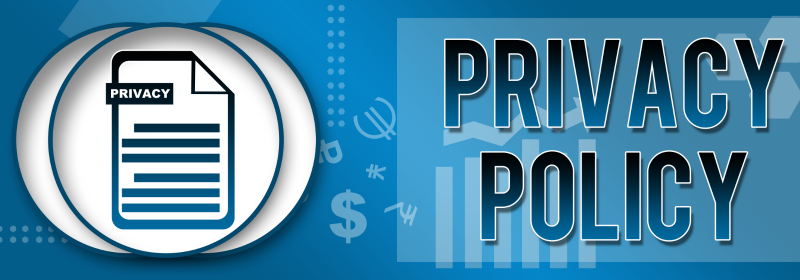Importance of Data Privacy in The Digital Age

Data privacy has become increasingly important in the digital age due to the vast amount of personal information that is shared and stored online. With the rise of social media, online shopping, and digital communication, individuals are constantly providing personal data to various websites and companies. This data can include sensitive information such as names, addresses, phone numbers, and financial information. Data breaches and cyber attacks have become more common, leading to the exposure of personal information and potential identity theft.
Growing Significance of Instagram Data Collection

Instagram has become one of the most popular social media platforms, with over 1 billion active users. With its focus on visual content, Instagram has become a hub for influencers, businesses, and individuals to share their lives and promote their products. However, Instagram’s data collection practices have come under scrutiny in recent years. Instagram collects a significant amount of data from its users, including location data, search history, and the content users interact with.
Understanding Instagram Data Collection
Instagram is one of the most popular social media platforms, with over 1 billion active users. It is known for its focus on visual content, making it a hub for influencers, businesses, and individuals to share their lives and promote their products. However, Instagram’s data collection practices have come under scrutiny in recent years. Instagram collects a significant amount of data from its users, including location data, search history, and the content users interact with.
Types of Data Collected By Instagram
Instagram collects various types of data from its users, including:
1. User profile information: This includes user names, email addresses, phone numbers, and profile pictures.
2. Usage data: Instagram collects data on how users interact with the app, such as the content they view, like, and comment on, as well as the hashtags they use.
3. Location data: Instagram collects data on the location of users when they use the app, which can be used to provide location-specific content and advertisements.
Instagram’s Data Usage And Privacy Policies
Instagram’s data usage and privacy policies state that they collect user data to provide and improve their services, personalize content and ads, and keep their platform safe and secure. They also state that they may share user data with third-party partners, such as advertisers, but only after taking appropriate measures to protect user privacy. Users have control over their data and can manage their privacy settings, including what information is shared with others and what ads they see.
The Role of a Privacy Policy
A privacy policy is a legal document that outlines how a company collects, uses, and protects user data. It is an important tool for building trust with users and demonstrating a commitment to their privacy. A privacy policy should be clear and concise, using simple language that users can easily understand. It should also be transparent about what data is being collected, why it is being collected, and how it will be used.
Definition And Purpose of A Privacy Policy
A privacy policy is a legal document that outlines how a company collects, uses, and protects user data. Its purpose is to inform users about the company’s data practices and to build trust with them by demonstrating a commitment to their privacy. A privacy policy should be clear and concise, using plain language that users can easily understand. It should also be transparent about what data is being collected, why it is being collected, and how it will be used.
Significance of A Privacy Policy in Data Collection

A privacy policy is significant in data collection because it helps to establish trust between a company and its users. By being transparent about how user data is collected, used, and protected, a company can demonstrate its commitment to user privacy and build a positive reputation. A privacy policy can also help a company comply with legal requirements related to data protection, such as the General Data Protection Regulation (GDPR) in the European Union or the California Consumer Privacy Act (CCPA) in the United States.
Determining the Need for a Privacy Policy
When a company collects personal information from its users, it is important to have a privacy policy in place. A privacy policy outlines how the company collects, uses, and protects user data. It also informs users of their rights related to their personal information. If a company operates in a jurisdiction that requires a privacy policy, such as the EU or California, then it is legally required to have one.
Benefits of Having a Privacy Policy
Having a privacy policy can provide several benefits to a company. Firstly, it can help build trust with users by showing that the company values their privacy and takes steps to protect their personal information. This can lead to increased customer loyalty and satisfaction. Secondly, a privacy policy can help a company comply with legal requirements and avoid potential legal issues. If a company is found to be mishandling user data, it can face fines and legal action.
Enhancing Transparency And Trust With Users
A privacy policy can be a powerful tool for enhancing transparency and trust with users. By clearly outlining how the company collects, uses, and protects user data, users can have a better understanding of how their personal information is being handled. This can help build trust with users, which can lead to increased customer loyalty and satisfaction. Additionally, a privacy policy can provide users with the assurance that their personal information is being handled responsibly and ethically, which can help to strengthen the company’s reputation.
Mitigating Legal And Regulatory Risks
A privacy policy can also help a company mitigate legal and regulatory risks. By clearly outlining how user data is collected, used, and protected, a privacy policy can help a company comply with data protection laws and regulations, such as the General Data Protection Regulation (GDPR) in the European Union or the California Consumer Privacy Act (CCPA) in the United States. Failure to comply with these laws and regulations can result in significant fines and legal penalties.
Demonstrating Commitment to Data Privacy
A company can demonstrate its commitment to data privacy by implementing strong security measures, regularly reviewing and updating its privacy policy, and being transparent about its data collection and usage practices. It can also appoint a data protection officer to oversee compliance with data protection laws and regulations and provide training to employees on data privacy best practices. Additionally, the company can participate in industry-wide privacy initiatives and obtain certifications or accreditations to show its dedication to protecting user data.
Incorporating the Policy Into Your Website or App

To incorporate the privacy policy into your website or app, you can create a separate page dedicated to it and include a link to this page in the footer or header of your website or app. You can also include a pop-up notification that informs users about your privacy policy and asks them to review and accept it before using your website or app. It’s important to make the policy easily accessible and understandable to users, so consider using plain language and organizing the policy into sections for clarity.
Ensuring Compliance With Evolving Privacy Regulations
To ensure compliance with evolving privacy regulations, it’s important to regularly review and update your privacy policy. Stay informed about any changes to privacy laws and regulations that may affect your business, and make sure your policy reflects these changes. You may also want to consider hiring a legal professional with expertise in privacy law to review your policy and provide guidance on compliance. In addition to updating your privacy policy, it’s important to implement appropriate data security measures to protect user information.
Communicating Privacy Policies to Users
Once you have updated your privacy policy, it’s important to communicate it clearly to your users. This can be done in several ways, including:1. Making the privacy policy easily accessible on your website or app, such as in the footer or as a pop-up.
2. Provide a summary or highlights of the policy in plain language, so that users can quickly understand what information is collected, how it is used, and how it is protected.
Strategies For Informing Users About Your Privacy Practices
In addition to making your privacy policy easily accessible and providing a summary, there are other strategies you can use to inform your users about your privacy practices. This includes:
1. Send an email to your users announcing the updated privacy policy and explaining the changes.
2. Including a notice about the updated policy in your newsletter or blog.
3. Posting about the updated policy on your social media channels.
4. Provide a FAQ section on your website or app that answers common questions about your privacy practices.
Frequently Asked Questions (FAQs)
Does Instagram provide tools for data management?
Yes, Instagram provides tools for data management. Users can access their data through the “Download Your Data” tool, which allows them to download a copy of their photos, videos, messages, and other information. Instagram also allows users to manage their privacy settings, control who can see their posts and stories, and block or report accounts that violate their privacy. Additionally, Instagram provides information on how to protect your account from hacking and phishing attempts.
Can my company collect Instagram data without a privacy policy?
No, collecting Instagram data without a privacy policy is not recommended. If your company is collecting any personal information from Instagram users, it is important to have a privacy policy in place that outlines how the data will be collected, used, and protected. This is not only important for legal compliance but also to build trust with your users and show them that their privacy is being respected. It is always a good practice to be transparent about data collection and usage to avoid any potential legal or ethical issues.
What are the consequences of not having a privacy policy?
Not having a privacy policy in place can have serious consequences for a business or individual. Firstly, it can lead to legal issues and fines if the data collected is sensitive or personal and is misused or mishandled. Secondly, it can damage the reputation of the business or individual, as users may feel that their privacy is not being respected and may choose to stop using the service or product.
Do I need a lawyer to draft my privacy policy?
While it is not necessary to have a lawyer draft your privacy policy, it is highly recommended. A privacy policy is a legal document that outlines how personal data is collected, used, and protected, and it is important to ensure that it is accurate and complies with relevant laws and regulations. A lawyer can help ensure that your privacy policy is comprehensive, clear, and legally binding.
How often should I update my privacy policy?
It is recommended to review and update your privacy policy at least once a year or whenever there are significant changes to your business practices or applicable laws and regulations. This ensures that your privacy policy remains accurate and up-to-date in reflecting how personal data is collected, used, and protected by your organization.
Conclusion
In conclusion, it is important to update your privacy policy regularly to ensure that your users are informed about how their data is being collected, used and protected. While making your policy easily accessible is crucial, it is also important to communicate any updates to your users through various channels to ensure that they are aware of any changes. By being transparent and proactive in your privacy practices, you can build trust with your users and strengthen your brand reputation.
